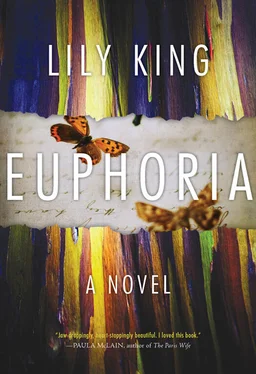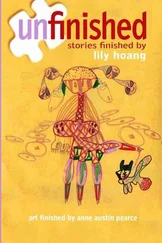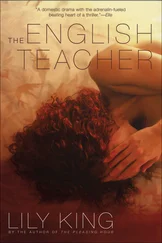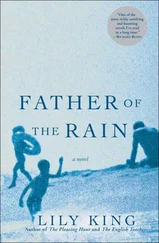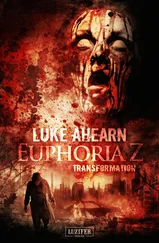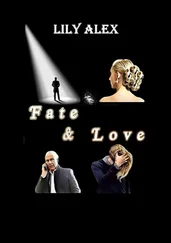‘Let’s go,’ I said.
‘Go? Where to?’ Fen said.
‘I’ll take you upriver. Plenty of room at my place.’
‘We have a room upstairs,’ Nell said.
‘You won’t sleep. And if they burn the place down, you won’t have a bed. This lot have been drinking steadily for five days now.’ I pointed to her hand and the lesions I’d just noticed on her left arm. ‘And I have medicine for those cuts. They don’t look like they’ve been treated at all.’
I was standing now, hovering, waiting for them to agree. Whap whap. I need you. I need you. I changed tacks, said to Fen, ‘You said you’d like to see the Kiona.’
‘I would, very much. But we’re leaving for Melbourne in the morning.’
‘How’s that?’ There had been no mention of leaving New Guinea in the several hours we’d been together.
‘We’re going to try and steal a tribe from Elkin.’
‘No.’ I didn’t mean to say it, not in such a petulant tone. ‘Why?’ The Aborigines? They couldn’t go to the Aborigines. ‘What about the Mumbanyo? You’ve only been there five months.’
Fen looked at Nell to explain.
‘We couldn’t stay any longer,’ she said. ‘ I couldn’t at any rate. And we had the idea that maybe in Australia we could find a region that has not been claimed.’
The word claimed helped me to understand. I suspect she knew it would. ‘Do not under any circumstances leave the Sepik because of me. I do not own it, nor do I want to. There are eighty anthropologists for every bloody Navajo, yet they give me a seven-hundred-mile river. No one dares come near. They think it’s “mine.” I don’t want it!’ I was aware of the whinge in my voice. I didn’t care. I’d get on my knees if I had to. ‘Please stay. I will find you a tribe tomorrow — there are hundreds of them — far far away from me if you like.’
They agreed so quickly, and without even glancing at each other, that I wondered afterward if they’d been playing me rather handily all along. It didn’t matter. They might have needed me. But I needed them far more.
As I waited for them to collect their things from their upstairs room, I tried to recall every tribe I’d heard of up and down the river. The first that came to mind was the Tam. My informant, Teket, had a cousin who’d married a Tam and he always used the word peaceful when he described his time there. I’d seen a few Tam women trading their fish at market and I’d noted their laconic business savvy, the way they held their ground against the hard-bargaining Kiona where other tribes capitulated. But Lake Tam was too far. I needed to think of a people much closer.
They came down with their bags.
‘That can’t be all you’ve got.’
Fen grinned. ‘No, not quite.’
‘We sent the rest on to Port Moresby,’ Nell said. She had changed into a man’s white shirt and tan trousers, as if she expected to be back at work by morning.
‘I can send word to have it brought back up. That is, if you stay.’ I picked up two of their duffels and headed out before they could change their mind.
My ears rung in the sudden quiet. With the electric light pouring out of the government house and the music tapering to a thin strain and the shorn grass underfoot, we could have been walking out of a dance at Cambridge on a warm night. I turned back and Fen had taken her hand.
I led them across the road, past the docks, through the break in a thicket, and onto the small beach where I’d stashed my canoe. Even in the dark I could see their faces droop. I think they’d imagined a proper boat, with seats and cushions.
‘I won this. It’s a war canoe. I got it for shooting a boar.’ I made up for their disappointment with great energy, tossing their bags in then running back up the beach for the engine, which I had hid behind a fat fig tree.
They brightened up considerably when they saw it. They’d thought I was going to paddle them to my village, which would have taken all night and most of the next morning.
‘Now this is something I haven’t seen,’ Fen said as I bolted the motor into place.
I rearranged the duffels at the front, making a bed of sorts so Nell could sleep. I directed her toward it, put Fen in the middle, and pushed us out a few yards. After I hopped in I pulled the cord and hit the throttle hard. If they had any last doubts I didn’t hear them over the wail of the engine, which slid us quickly across the dark crimped water toward Nengai.
I was raised on Science as other people are raised on God, or gods, or the crocodile.
If you took aim at New Guinea and shot an arrow up through the globe, it might come out the other side at the village of Grantchester, on the outskirts of Cambridge, England. The house I grew up in there, Hemsley House, had been in the possession of Bankson scientists for three generations, its every desktop, drawer, and wardrobe stuffed with science’s remnants: spyglasses, test tubes, finger scales, pocket magnifiers, loupes, compasses, and a brass telescope; boxes of glass slides and ento pins, geodes, fossils, bones, teeth, petrified wood, framed beetles and butterflies, and thousands of loose insect carcasses that turned to powder upon contact.
My father read zoology in St. John’s College at Cambridge and became a fellow and steward there as was expected. He and my mother met in 1897, married that June, and had three boys three years apart: John then Martin then me.
My father had a big moustache, which often hid a small smile. I didn’t understand his humor until I was grown and he had lost it, and took him very much at his word, which amused him, too. He was interested, for my entire childhood, in eggs. He incubated them first in Nanny’s room then, when she complained, out in a shed. When they were ready he’d pick up each egg, write down the number of the pen, hen, and date of laying, then pick off the shell and study every detail of the embryo. He bred mice, pigeons, guinea pigs, goats, and rabbits; he grew and studied snapdragons and peas. He never lost his passion for Mendel. He believed there was a missing piece to Darwin’s theories, as did Darwin himself, for there had to be an explanation of how phenotypes were transferred from one generation to the next. His concept of genetics began with an image of a wave or a vibration. His career — piebald as it was, sometimes pariah, sometimes hero — was the result of his curiosity, his interrogative nature. He was an apostle of science, of the pursuit of questions and answers, and he expected his sons to be apostles, too.
By the time I reached New Guinea in 1931, when I was twenty-seven, my mother and I were the only remaining members of our family, and she had become a great psychological burden to me, both needy and despotic, a tyrant who seemed not to know what she wanted for or from her last remaining subject. But she had not always been so. In my youth I remember her as soft and sweet and, though I was the last of the lot, young. I remember her deferring to my father in all instances, waiting for his word on one matter or the other, unable to give us boys answers to the most benign of questions: Could we bring the spiders in the house if they were in jars? Could we spread jam on the rock to watch the slave-maker ants try and transport it? We had a special bond because she did not want me to grow up and I did not want to grow up either. My brothers didn’t make it look easy. John agreed to everything my father said, and Martin next to nothing. Neither road looked all that sunny to me, so I was happy to sprawl in my mother’s lap for a good long time.
Our visit to my father’s sister, Aunt Dottie, in the summer of 1910 is the first sustained memory I have. She was one of our many maiden aunts, and the most interesting to me. She had an exquisite beetle collection, all pinned and framed and labeled in her copperplate, squares and squares of them, laid out on velvet. Other women had jewelry; Aunt Dottie had beetles in every color and shape, all found in the New Forest, which was ten miles from her house. It was to the New Forest we would go every day with her in our gumboots and our buckets knocking together. There was a pond she liked, a good hour’s walk in, and she’d be the first to march straight in it, the mud sometimes deeper than her wellies, and more than once we had to pull her out, all three of us in a line — me at the end on dry ground — and laughing too hard to be of any use, but Aunt Dottie would play it up, pretending to be stuck and sinking and then allowing us to slowly bring her up and out of the water. She always had the most stunning creatures in her net — a natterjack toad, a great-crested newt, a swallowtail butterfly — and could only be rivaled occasionally by John, who had more patience than Martin or me with our scoopfuls of tadpoles. That is where my mind goes when I think of John, twelve years old, wading into a steaming, buzzing pond in the New Forest on a hot July day, bucket in one hand, net in the other, his eyes scouring the filmy surface. We got a letter after he died from a fellow officer who said John treated the war like a good long field excursion. ‘I do not mean to imply that he was not focused when he needed to be; he was, as I’m sure you have learnt from his commanding officers, an exceptionally courageous and thoughtful soldier. But while his comrades were inclined to complain about living in a ten-foot ditch, John would let out a jubilant yelp, having found the fossil of a Pliocene mollusk or spied a rare species of falcon flying overhead. He had a great passion for this earth, and while he left it and us far too soon, I am certain he is home.’ My mother did not like this letter or its suggestion that John was ‘home’ when his body was blown to bits over a Belgian farm, but I took comfort in it. There was little comfort after John’s death, and I chose to take it where I could find it.
Читать дальше
